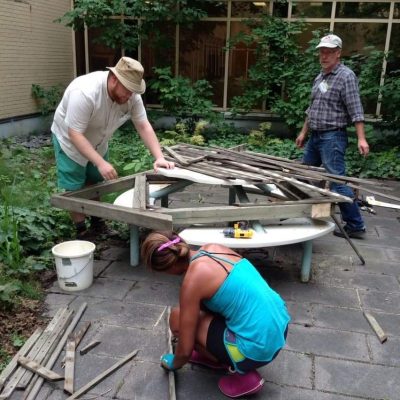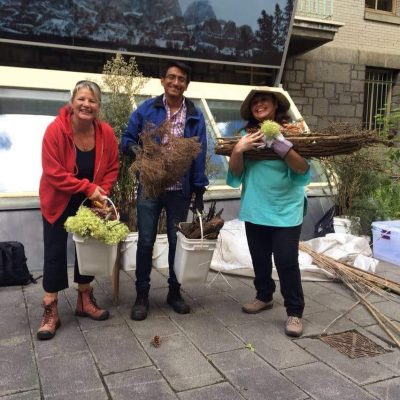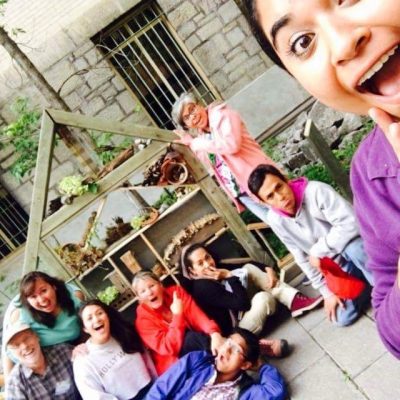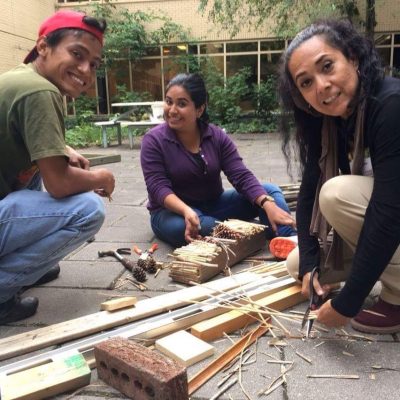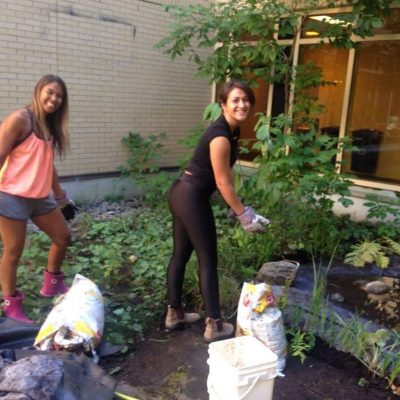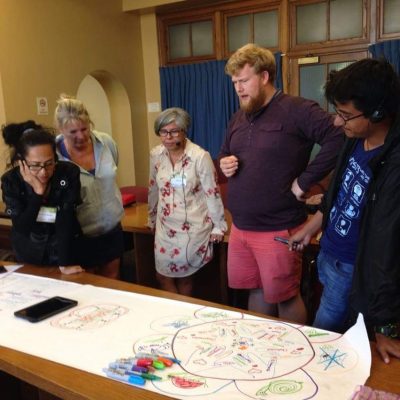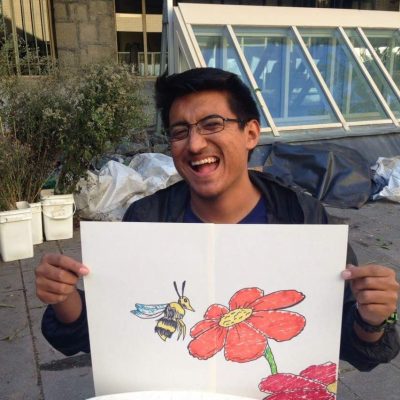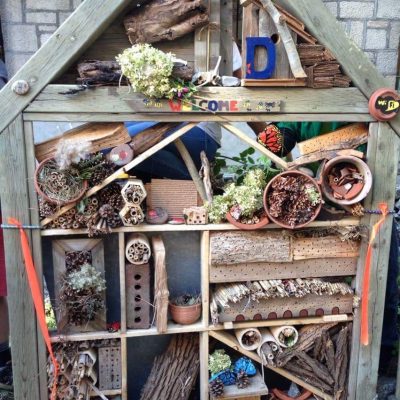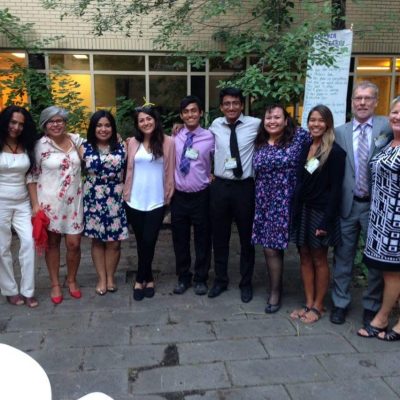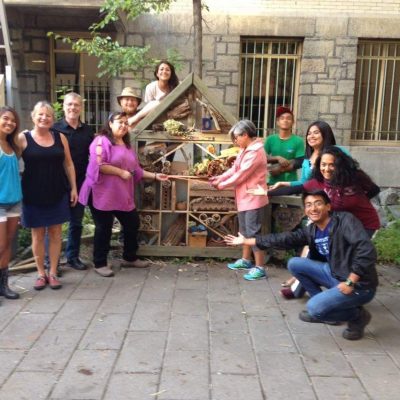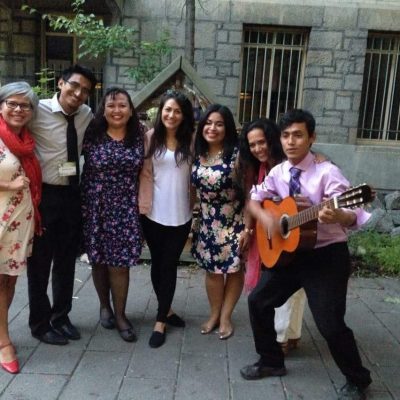El trabajo comunitario en Dawson College (English translation below)
Por Valeria Dávila Solano
Muchas veces escuchamos hablar de “trabajo comunitario”, pero, ¿qué nos causa esto? ¿Qué representa? ¿Qué conlleva? Para algunos puede ser un trabajo arduo, una labor social, algo que beneficiará al que recibe el servicio, ya que en teoría no se recibe una recompensa por hacerlo, y por lo tanto muchas personas evitan hacer esta actividad. Otro termino que se usa mucho en algunos ámbitos es el de “hacer comunidad” pero ¿qué significa esto? En términos de la Ecología la comunidad es un conjunto de seres vivos de diferentes especies que habitan en un determinado hábitat. Esta puede conformarse con elementos tan diferentes, pero con algo en común, dándole una identidad única. Si hablamos de que en ella se involucre una población humana y por ende se agreguen otros factores como sociales y económicos, vamos entonces a hablar de otras dinámicas, donde la convivencia, el lenguaje, la cultura, las costumbres, la educación y los intereses juegan un papel importante para el comportamiento de la misma, y por ello se habla de trabajar en construir estas comunidades de manera directa e indirecta.
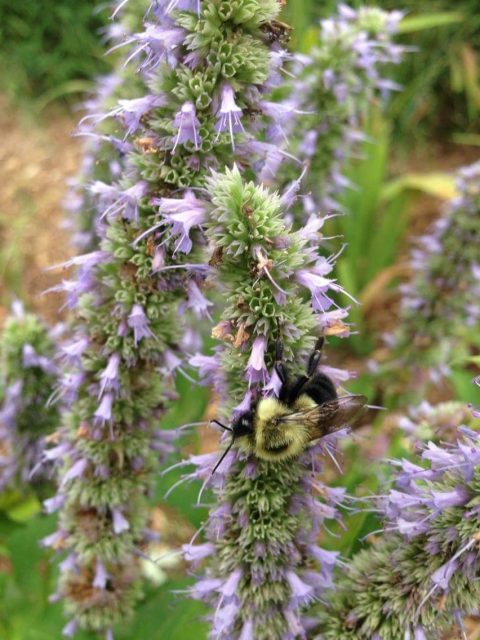
Pero que tienen que ver entre sí el trabajo comunitario y hacer comunidad? Estos conceptos no son sinónimos, pero pueden llegar a coincidir cuando se trabaja de la manera correcta. La construcción de un hotel para insectos y un jardín acuático, parte del trabajo de Restauración Urbana, parte de los Proyectos por la Paz de Dawson College, fue muestra de ello.
Durante 3 días profesores y estudiantes del Colegio Dawson (Canadá), la UAEM, la UPN y la UPEMOR (México) compartimos experiencias, saberes y aprendimos a hacer comunidad al hacer un trabajo comunitario que beneficiará, no solo a los insectos que habitaran el hotel, ni a las aves y otros animales que lleguen al jardín, sino también a la comunidad educativa de Dawson College. El objetivo de este proyecto de restauración urbana era crear un espacio donde los insectos puedan tener su habitad y resguardarse en el invierno que está por llegar. Es un invierno que en la realidad no conocemos en México. Hablan de más de cuatro meses de fríos intensos (temperaturas de -30ºC), nieve de más de un metro de altura, menor radiación solar y menos horas de luz, algo que lleva a la comunidad de Dawson a tener un cambio de paisaje, de ritmo de vida, de actitud y de estado de ánimo; si eso pasa con los humanos ¿qué pasa con la biodiversidad de afuera? Ellos no siempre se pueden proteger de estos cambios de clima, no siempre tienen los recursos o el metabolismo para poder sobrevivir. Solo algunas especies pueden invernar, crear las estrategias para que las futuras generaciones puedan resurgir en la primavera siguiente y favorecer la polinización de las flores; es por eso la importancia de crear un espacio para brindar esa oportunidad a los insectos y a otras especies, creando así un espacio que pueda servir para la reflexión, el estudio o la visita de los estudiantes y profesores del colegio.
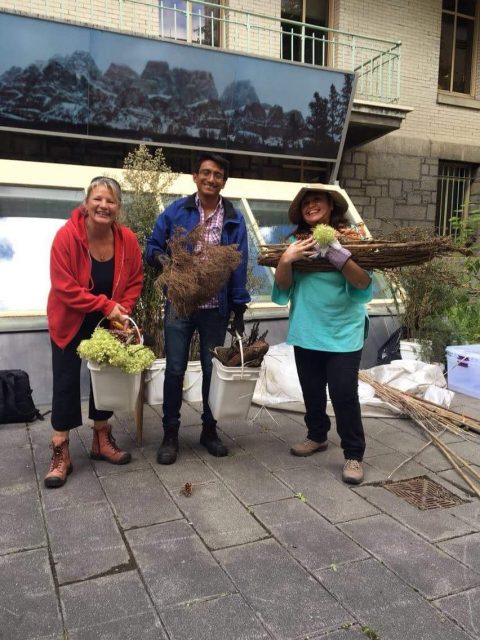
Pero, donde yo sentí el significado de “hacer comunidad”, fue en el trabajo mismo. Once personas, con diferente profesión, ideología, motivación, experiencia y cultura, trabajamos por un objetivo común. No importó la barrera del idioma, ni el cansancio, ni la cantidad de trabajo pendiente, solo importó la voluntad, las ganas de hacerlo, y cada vez nos entusiasmábamos más, escuchamos todas las ideas, sumábamos ocurrencias y daba lo mismo si taladrabas, clavabas, pintabas, recolectabas materiales, amarrabas, dibujabas, construías o escribías, todos y cada uno de nosotros poníamos un granito de arena, dábamos nuestro esfuerzo y corazón en cada actividad hasta lograr el resultado, que no solo fue el hotel de insectos y el jardín acuático, sino un compañerismo y un cariño que se ha quedado en nuestro corazón, un lazo entrañable que se ha formado entre México y Canadá, una nueva comunidad.
Community work at Dawson
By Valeria Davila
Translated by Abril Oregon Gonzalez
We often hear about “community work”, but what is it’s effect on us? What does it represent? What does it entail? For some, it can be hard work, social labor, something that will benefit the person who receives the service. In theory, there is no reward for doing it and for that reason, a lot of people avoid doing this activity. Another expression used often in certain fields is “community building” but what does it signify? In ecological terms, the community is a group of living beings of different species that live in a determined habitat. This community can be made up of different elements but with something in common, giving it a unique identity. If we speak of it in reference to a human population and where some other social and economic factors might be added, then we will be speaking of other dynamics where co-existence, language, culture, customs, education and interests play a role in the behavior of this community. We speak of working to build these communities in a direct and indirect way.

But what’s the link between community work and community building? These concepts are not synonyms but they can intertwine when we work in the correct way. The construction of the Insect Hotel and Pond, a part of the Urban restauration activity and a part of the Peace Projects of Dawson College, was a demonstration of it.
During 3 days, teachers and students from Dawson College (Canada), the UAEM, the UPN and the UPERMOR (Mexico) shared experiences, knowledge and learned to build community by doing community work that will benefit, not only the insects that live in the hotel, or the birds and other animals that come to the garden but also the educational community of Dawson College. The objective of this urban restauration project is to create a space where the insects have their habitat and can protect themselves from the winter that is about to come. It is a kind of winter that is unknown for us in Mexico. They talk about more than four intensively cold months (temperatures of -30ºC), snow of more than a meter of height, minor solar radiation, less hours of light, something that makes the community of Dawson have a change of landscape, life rhythm, attitude and state of humor; if this is what happens to humans, what happens with the outdoor biodiversity? They cannot always protect themselves from these weather changes, they do not have the resources or the metabolism to survive. Only certain species can hibernate, create strategies so future generations can come out the next spring and help with flower pollination. That is where the importance of creating a space to give insects and other species that opportunity lies. Like that, creating an area that can be used for reflection, study or visits from students and teachers from the college.

But where I felt the most significance of community building was in the work itself. Eleven people, with different professions, ideology, motivation, experience and culture, worked for a common objective. The language barrier, fatigue, the quantity of work did not matter. What really mattered was the willingness, and the interest of doing it and we got more enthusiastic every time. We listened to all the ideas given, we added them and people painted, recollected materials, tied , drew, built or wrote. Each and every one of us put our little grain of sand, we would give our effort and heart in every activity until we reached our goal, that was not only the Insect Hotel and the Pond, but also building companionship and love that has stayed in our hearts, an unbreakable alliance that was formed between Mexico and Canada, a new community.


